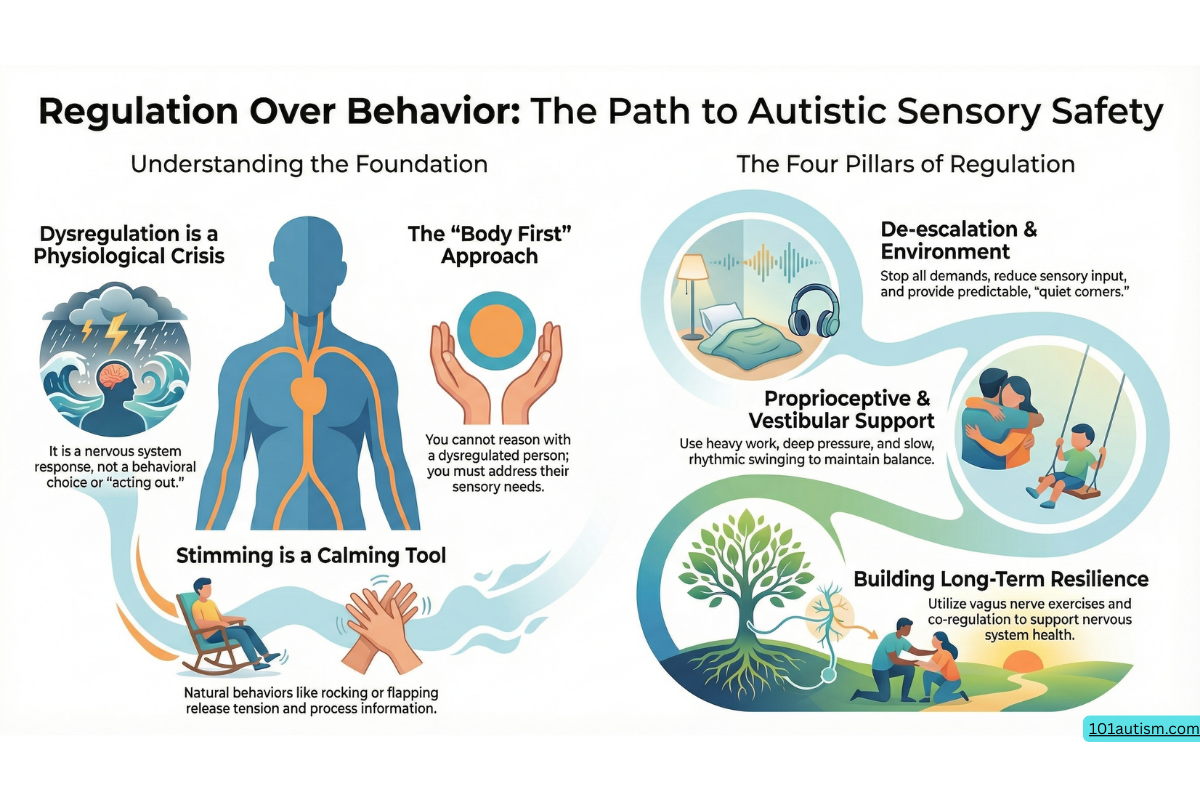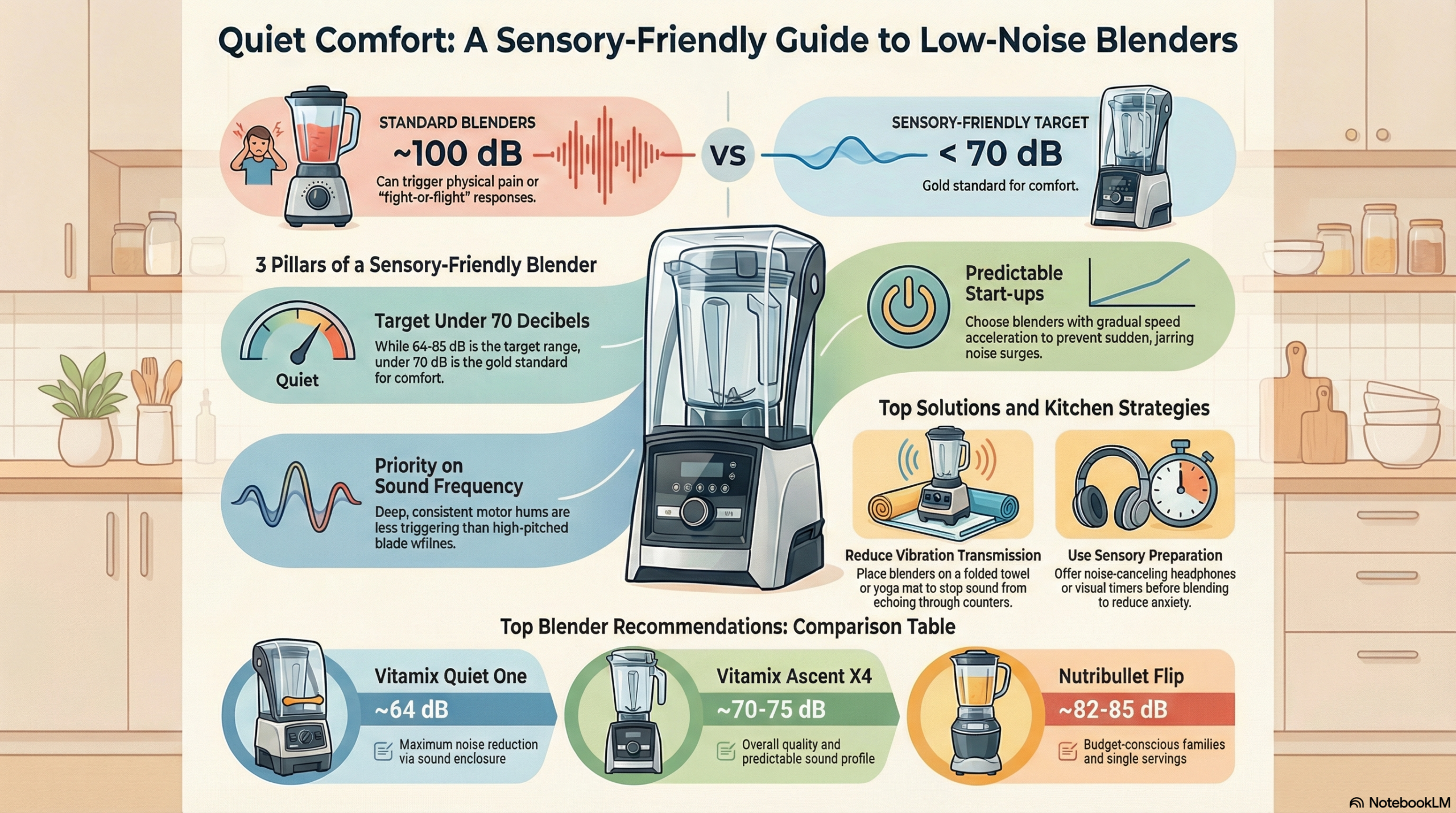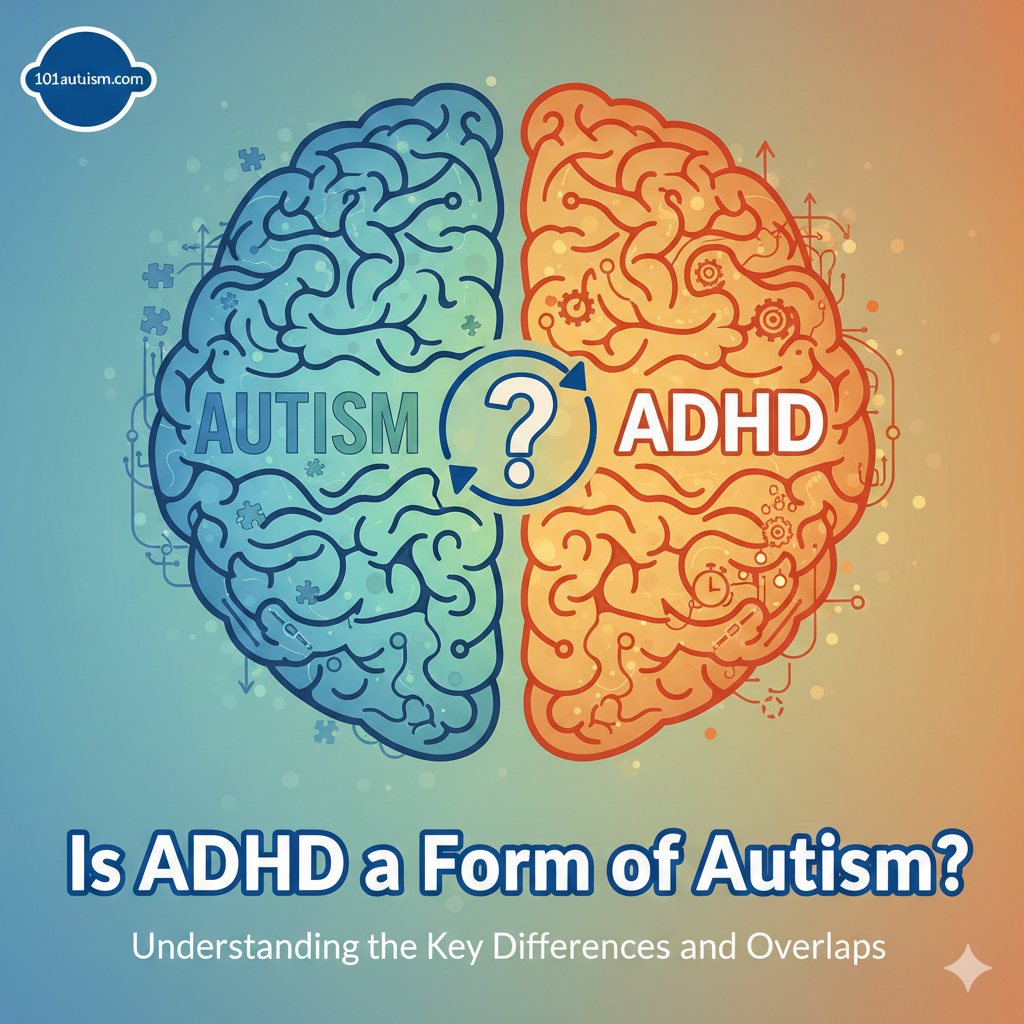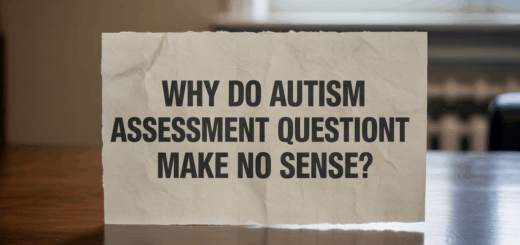Are You Neurodivergent? Take the Neurodivergent Test and Find Out
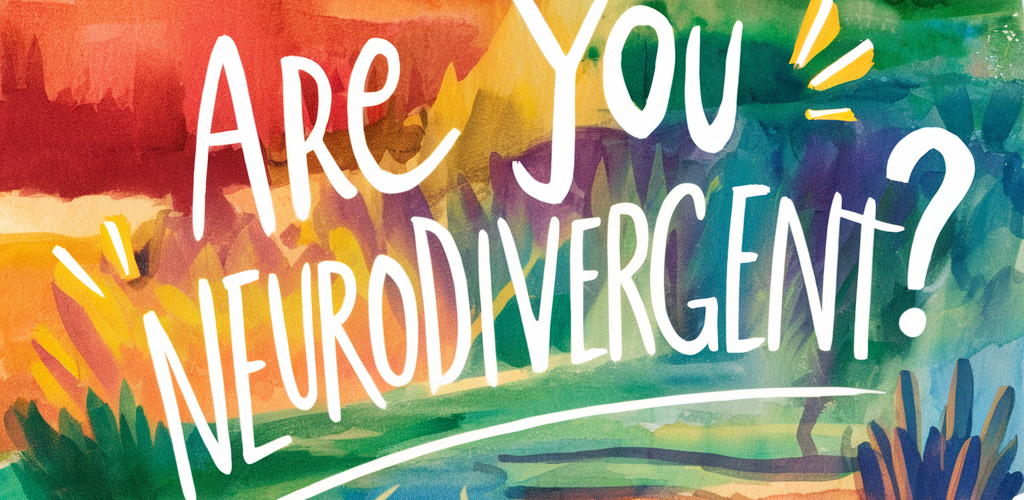
- What Is Neurodivergence?
- Signs of Neurodivergence
- Take the Neurodivergent Test
- Neuropsychological tests recommended for neurodivergent individuals
- Embracing Neurodiversity
- Neurodivergent or Neurotypical: Embracing All Brain Types
- The Spectrum of Neurodiversity
- Seeking Professional Guidance
- Embracing Neurodiversity and Self-Acceptance
- Navigating Life as a Neurodivergent Individual
- Challenges Faced by Neurodivergent Individuals
- Embracing Your Strengths and Advocating for Yourself
- Neurodiversity in the Workplace and Education
- Neurodiversity in the Workplace
- Neurodiversity in Education
- Moving Towards a More Inclusive Society
- Neurodiversity and Mental Health
- Common Mental Health Challenges
- Seeking Support and Resources
- Embracing a Holistic Approach
- Neurodiversity and Relationships
- Challenges in Relationships
- Fostering Understanding and Acceptance
- Building Connections and Understanding
- Neurodiversity and Creativity
- Neurodivergent Minds and Creative Thinking
- Overcoming Barriers and Fostering Creativity
- Neurodiversity and Advocacy
- Ways to Get Involved in Neurodiversity Advocacy
- Neurodiversity and Intersectionality
- Intersections of Neurodivergence Some examples of intersections that neurodivergent individuals may experience include:
- Neurodiversity and the Future
- Building Neurodiversity-Affirming Communities
- Harnessing the Power of Neurodivergent Innovation
- Forging Ahead with Neurodiversity
- Taking Action for Neurodiversity
- Celebrating Neurodiversity:
- Neurodiversity and the Workplace of the Future
Do you ever feel like you’re wired differently from most people? Do social situations leave you feeling drained and overwhelmed? You may have exceptional attention to detail or a unique way of problem-solving. If any of these resonate with you, you might be neurodivergent.
What Is Neurodivergence?
Neurodivergence refers to variations in brain functions that diverge from what is considered “typical” or “neurotypical.” It encompasses a wide range of conditions, such as autism, ADHD, dyslexia, and more. Neurodivergent individuals often have different strengths and challenges than neurotypical people when processing information, social interactions, and other cognitive abilities.
It’s important to remember that neurodivergence is not a disorder or a deficiency; it’s simply a different way of being and experiencing the world. Many neurodivergent individuals possess remarkable talents and abilities that can be assets in various fields.
Read more: Are You Neurodivergent? Take the Neurodivergent Test and Find OutSigns of Neurodivergence
If you’re wondering, “Am I neurodivergent?” or “Am I neurodivergent or just weird?” it might be helpful to familiarize yourself with some common signs of neurodivergence. Here are a few potential indicators:
- Social and Communication Challenges
- Difficulty interpreting social cues and body language
- Struggles with making eye contact or maintaining conversations
- Literal interpretation of language and difficulty with sarcasm or idioms
- Sensory Sensitivities
- Heightened or diminished sensitivity to sounds, lights, textures, or smells
- Easily overwhelmed in busy or chaotic environments
- Intense Interests and Focus
- Fixation on specific topics or activities with an exceptional level of knowledge
- Ability to concentrate for long periods on areas of interest
- Repetitive Behaviors or Routines
- Preference for predictability and discomfort with change
- Engagement in repetitive movements or speech patterns
- Unique Perspectives and Problem-Solving
- Unconventional thinking and innovative approaches to problem-solving
- Exceptional abilities in specific areas, such as math, music, or art
Take the Neurodivergent Test
If you resonate with some of these signs and want to explore further, consider taking a neurodivergent test or quiz. These self-assessments can provide insight into your neurocognitive profile and help determine if you might be neurodivergent.
Here are some popular options:
- “Am I Neurodivergent Quiz” or “Neurodivergent Test” by reputable organizations or mental health professionals
- “Neurodivergent Symptoms Quiz” or “Signs of Neurodivergence Test” for adults
- “Neurotypical vs. Neurodivergent Test” to compare your traits and experiences
It’s important to note that these online tests and quizzes are separate from a formal diagnosis from a qualified professional. They can serve as a starting point for self-exploration and potentially guide you toward seeking a professional neurodivergent assessment.
Neuropsychological tests recommended for neurodivergent individuals
There are indeed specific neuropsychological tests that are recommended or adapted for neurodivergent individuals, considering their unique cognitive profiles and the need for culturally sensitive assessment methods:
- Diagnostic mistakes of culturally diverse individuals when using North American neuropsychological tests highlight the challenges of using standard neuropsychological tests across different cultures, suggesting the need for tailored assessments to reduce diagnostic errors (Daugherty et al., 2017).
- Neuropsychological testing of culturally and linguistically diverse individuals: the case of Greek-speaking individuals discusses the importance of having neuropsychological tests normed for specific populations to improve diagnostic accuracy, underscoring the value of population-specific norms (Plitas and Plakiotis, 2010).
- Estabilidad de las dimensiones cognitivas de una batería de tests neuropsicológicos explores the stability of cognitive dimensions in a neuropsychological test battery, suggesting that understanding the cognitive profiles can help tailor the tests more effectively (Díaz Mardomingo et al., 2012).
- The impact of cognitive ability on multitalker speech perception in neurodivergent individuals examines how cognitive abilities affect certain specific sensory and cognitive tasks, indicating the importance of including such tailored tests in a broader neuropsychological assessment (Lau et al., 2022).
- Modern neuropsychological tests for a diversity of cultural contexts reviews the adaptation of neuropsychological tests for diverse cultures, emphasizing the need for modern tests that are sensitive to cultural and linguistic differences (Fernández, 2019).
Embracing Neurodiversity
Whether you identify as neurodivergent or neurotypical, embracing and celebrating the diversity of human brains and cognitive styles is crucial. Neurodivergent individuals bring unique perspectives, talents, and strengths to the table, enriching our understanding of the world and pushing the boundaries of innovation.
If you suspect you might be neurodivergent, remember that it’s not something to be ashamed of or to hide. Seek support from mental health professionals, join neurodivergent communities, and surround yourself with people who understand and appreciate your unique way of being.
Ultimately, the journey toward understanding your neurocognitive profile is a personal one. Still, it can lead to greater self-acceptance, empowerment, and the ability to leverage your strengths meaningfully.
Neurodivergent or Neurotypical: Embracing All Brain Types
While the signs and traits mentioned earlier can provide insight into potential neurodivergence, it’s crucial to understand that every individual is unique, and labels or categories should never define a person’s worth or capabilities.
The Spectrum of Neurodiversity
Neurodiversity encompasses a broad spectrum, with neurodivergent and neurotypical individuals representing different points along this continuum. Some people may exhibit a few neurodivergent traits, while others may have multiple overlapping conditions. Additionally, the degree of impact can vary greatly, with some individuals experiencing significant challenges and others possessing remarkable strengths in certain areas.
It’s also important to recognize that neurodivergence is not an all-or-nothing concept. Many individuals may fall somewhere between the neurodivergent and neurotypical extremes, exhibiting a blend of traits and experiences. This diversity reflects the incredible complexity and variability of the human brain.
Seeking Professional Guidance
If you’re unsure about your neurocognitive profile or suspect you might be neurodivergent, it’s advisable to seek guidance from mental health professionals or specialists in the field of Neurodiversity. They can provide comprehensive assessments, evaluations, and formal diagnoses if necessary.
Here are some steps you can take:
- Consult a licensed psychologist, psychiatrist, or neuropsychologist specializing in neurodivergent conditions.
- Inquire about standardized assessments, such as the Autism Diagnostic Observation Schedule (ADOS) or the Attention Deficit Hyperactivity Disorder (ADHD) rating scales.
- Discuss your concerns, symptoms, and experiences to help the professional make an informed evaluation.
- Be open to exploring various possibilities, as some neurodivergent conditions may overlap or present differently in different individuals.
Remember, a formal diagnosis is not required for self-acceptance or understanding of your neurocognitive profile. However, it can provide access to valuable resources, accommodations, and support networks.
Embracing Neurodiversity and Self-Acceptance
Whether you identify as neurodivergent or neurotypical, embracing and celebrating the diversity of human minds and cognitive styles is essential. Every brain is unique, and this diversity drives innovation, creativity, and progress in our society.
If you suspect you might be neurodivergent, remember that it’s not a flaw or a deficiency; it’s simply a different way of experiencing and interacting with the world. Surround yourself with supportive communities, advocate for inclusivity and understanding, and, most importantly, practice self-acceptance and self-love.
Embrace your unique strengths, challenges, and perspectives, and never let labels or societal norms dictate your worth or potential. By fostering an environment of Neurodiversity and inclusion, we can create a more compassionate and enriching world for all brain types.
Navigating Life as a Neurodivergent Individual
Suppose you’ve discovered that you are neurodivergent, either through self-exploration or a formal diagnosis. In that case, it’s essential to understand that this is not a limitation but a unique aspect of your identity. While there may be challenges, there are also incredible strengths and opportunities that come with being neurodivergent.
Challenges Faced by Neurodivergent Individuals
Let’s address some of the common challenges that neurodivergent individuals may face:
- Social Interactions: Difficulties with social cues, communication, and understanding neurotypical social norms can lead to misunderstandings and feelings of isolation.
- Sensory Overload: Heightened or diminished sensory sensitivities can make specific environments, such as crowded spaces or loud noises, overwhelming and distressing.
- Executive Functioning: Tasks involving organization, time management, and decision-making can be particularly challenging for some neurodivergent individuals.
- Stigma and Discrimination: Unfortunately, societal misconceptions and lack of awareness can lead to stigma, discrimination, and barriers in various aspects of life, such as education, employment, and healthcare.
Embracing Your Strengths and Advocating for Yourself
While these challenges are natural, it’s essential to recognize and embrace the unique strengths that often accompany neurodivergence:
- Exceptional Focus and Attention to Detail: Many neurodivergent individuals can concentrate and notice minute details that others may overlook.
- Unconventional Thinking and Problem-Solving: Neurodivergent minds can offer fresh perspectives and innovative solutions to complex problems.
- Intense Interests and Expertise: The deep fascination and dedication to specific topics can lead to remarkable knowledge and expertise.
- Heightened Sensory Awareness: Enhanced sensory perception can be a superpower in art, music, or design.
To navigate life as a neurodivergent individual, it’s crucial to advocate for yourself and seek out accommodations and support systems that can help you thrive:
- Educate others about Neurodiversity and your specific needs or preferences.
- Identify and leverage your strengths in educational or professional settings.
- Join neurodivergent communities and support groups for shared experiences and resources.
- Seek out mental health professionals or coaches who specialize in supporting neurodivergent individuals.
- Embrace self-care practices that help manage sensory overload, executive functioning challenges, or other specific needs.
Remember, neurodivergence is not a deficit; it’s a different way of being that brings valuable perspectives and abilities to the world. By embracing your unique neurocognitive profile and advocating for yourself, you can create a life that celebrates your authentic self and allows you to thrive.
Neurodiversity in the Workplace and Education
As our understanding of Neurodiversity continues to grow, it’s essential to create inclusive environments that embrace and support neurodivergent individuals in various aspects of life, including the workplace and educational settings.
Neurodiversity in the Workplace
Neurodivergent individuals can bring incredible strengths and unique perspectives to the workplace but may also face challenges that require accommodations and support.
- Strengths of Neurodivergent Employees:
- Exceptional attention to detail and ability to spot patterns or errors
- Innovative problem-solving and out-of-the-box thinking
- Intense focus and dedication to tasks of interest
- Strong memory and recall abilities in specific areas
- Challenges and Accommodations:
- Provide quiet spaces or noise-canceling headphones to minimize sensory overload
- Allow flexibility in work schedules or locations to accommodate individual needs
- Offer clear and structured communication, avoiding ambiguity or excessive social cues
- Provide training and support for colleagues to foster understanding and inclusion
By creating a supportive and accommodating environment, neurodivergent individuals can thrive and contribute their unique talents and perspectives to the workplace.
Neurodiversity in Education
Educational settings can be particularly challenging for neurodivergent students, but they can unlock their full potential and succeed academically with the proper support and accommodations.
- Challenges in Traditional Educational Settings:
- Sensory overload in noisy or crowded classrooms
- Difficulties with social interactions and communication
- Struggles with executive functioning and organizational skills
- Rigid teaching methods that don’t cater to diverse learning styles
- Supporting Neurodivergent Students:
- Provide access to quiet spaces or sensory breaks when needed
- Offer alternative methods of instruction and assessment (e.g., visual aids, hands-on activities)
- Encourage the use of assistive technologies and learning aids
- Promote inclusive classroom practices and educate peers about Neurodiversity
- Collaborate with parents/caregivers and specialists to develop individualized support plans
By embracing Neurodiversity in education, we can create an environment where all students feel valued, understood, and supported in their unique learning journeys.
Moving Towards a More Inclusive Society
Promoting awareness, understanding, and acceptance of Neurodiversity is crucial for creating a more inclusive and equitable society. By recognizing the strengths and talents of neurodivergent individuals and providing the necessary accommodations and support, we can unlock their full potential and benefit from the richness of diverse perspectives and experiences.
Whether in the workplace, educational settings, or broader communities, embracing Neurodiversity is not just a matter of compliance but a commitment to celebrating the beautiful diversity of the human mind.
Neurodiversity and Mental Health
While neurodivergence is not inherently a mental health condition, it’s essential to acknowledge the potential impact it can have on mental well-being. Navigating a world that is often designed for neurotypical individuals can be challenging and lead to unique mental health concerns for neurodivergent people.
Common Mental Health Challenges
Neurodivergent individuals may be more susceptible to specific mental health challenges, including:
- Anxiety and Depression: The stress of navigating social situations, sensory overload, and societal misunderstandings can contribute to heightened anxiety and depressive symptoms.
- Low Self-Esteem and Self-Acceptance: Feeling “different” or misunderstood can lead to feelings of inadequacy and a struggle to embrace one’s authentic self.
- Social Isolation and Loneliness: Difficulties with social interactions and communication can make it challenging to form meaningful connections, leading to isolation and loneliness.
- Burnout and Overwhelm: The constant effort required to navigate a neurotypical world can be mentally and physically taxing, leading to burnout and exhaustion.
Seeking Support and Resources
Neurodivergent individuals must prioritize their mental health and seek support when needed. Here are some valuable resources and strategies:
- Counseling and Therapy: Working with a mental health professional who understands Neurodiversity can provide a safe space to process emotions, develop coping strategies, and work on self-acceptance.
- Support Groups: Connecting with others with similar experiences can offer a sense of community, understanding, and shared strategies for managing mental health challenges.
- Self-Care Practices: Engaging in activities that promote relaxation, stress relief, and sensory regulation can be instrumental in managing mental well-being.
- Accommodations and Advocacy: Advocating for accommodations in educational, professional, or social settings can help reduce stress and create a more supportive environment.
- Educating Others: Raising awareness about Neurodiversity and mental health can help combat stigma and promote community understanding.
Embracing a Holistic Approach
Mental health and Neurodiversity are deeply intertwined, and it’s essential to approach both with compassion, understanding and a commitment to creating inclusive and supportive environments. By recognizing the unique challenges neurodivergent individuals face and providing appropriate resources and accommodations, we can foster a society that celebrates the diversity of human minds and prioritizes mental well-being for all.
Neurodiversity and Relationships
Building and maintaining healthy relationships can present unique challenges for neurodivergent individuals, but with the proper understanding, communication, and strategies, these connections can be enriching and fulfilling for all involved.
Challenges in Relationships
Neurodivergent individuals may face certain obstacles when it comes to forming and sustaining relationships:
- Communication Barriers: Difficulties with social cues, non-verbal communication, and interpreting tone or context can lead to misunderstandings and frustrations.
- Sensory Needs: Heightened or diminished sensory sensitivities can impact how neurodivergent individuals experience and respond to physical touch, sounds, or environments.
- Social Expectations: Navigating neurotypical social norms and relationship expectations can be challenging and overwhelming.
- Emotional Expression: Some neurodivergent individuals may struggle with identifying, expressing, or regulating their emotions, creating barriers in intimate relationships.
Fostering Understanding and Acceptance
Building successful relationships as a neurodivergent individual often involves open communication, patience, and a willingness to educate and advocate for one’s needs:
- Communicate Needs and Preferences: Be transparent about your unique communication styles, sensory needs, and preferences to help your partner understand and accommodate you better.
- Educate and Raise Awareness: Provide resources and information about Neurodiversity to help your partner or loved ones better understand your experiences.
- Set Boundaries and Expectations: Establish clear boundaries and expectations to ensure that both parties feel respected, understood, and supported within the relationship.
- Seek Support: Consider couples counseling or support groups tailored explicitly for neurodivergent individuals and their partners to learn effective communication strategies and coping mechanisms.
- Practice Self-Acceptance: Embrace your neurodivergent identity and recognize the unique strengths and perspectives you bring to the relationship.
Building Connections and Understanding
Relationships can be deeply rewarding and fulfilling for neurodivergent individuals when both partners approach them with empathy, open-mindedness, and a willingness to learn and grow together. By fostering an environment of understanding, respect, and acceptance, neurodivergent individuals can form meaningful connections and thrive in their relationships.
Remember, every relationship is unique, and finding the right strategies and accommodations that work for both partners can take time and effort. However, by embracing Neurodiversity and prioritizing open communication, relationships can become spaces of mutual understanding, growth, and support.
Neurodiversity and Creativity
One of the remarkable aspects of neurodivergence is its potential to unlock unique forms of creativity and innovation. Many neurodivergent individuals possess exceptional talents and perspectives that can contribute to the arts, sciences, and other creative fields.
Neurodivergent Minds and Creative Thinking
Neurodivergent individuals often approach problem-solving and creativity in unconventional ways, which can lead to groundbreaking discoveries and artistic expressions. Some of the traits that can fuel creativity include:
- Intense Focus and Hyperfixation: The ability to become deeply absorbed in a particular interest or activity can drive neurodivergent individuals to explore creative pursuits with exceptional dedication and attention to detail.
- Divergent Thinking: Neurodivergent minds tend to think “outside the box,” offering fresh perspectives and innovative solutions that challenge traditional approaches.
- Sensory Awareness: Heightened or altered sensory experiences can shape unique artistic expressions, from visual arts to music and performance.
- Exceptional Memory and Pattern Recognition: Strong memory and the ability to identify patterns can contribute to creative endeavors that require meticulous attention to detail or the synthesis of complex information.
Overcoming Barriers and Fostering Creativity
While neurodivergent individuals possess inherent creative potential, they may face specific barriers that can hinder their creative expression:
- Sensory Challenges: Sensitivity to specific environments, such as bright lights or loud noises, can overwhelm creative spaces or processes.
- Executive Functioning Difficulties: Challenges with organization, time management, and task initiation can make it difficult to realize creative ideas.
- Social and Communication Barriers: Struggles with social interactions and communication can make collaborating or sharing creative works challenging.
To support and nurture neurodivergent creativity, it’s essential to create inclusive and accommodating environments:
- Provide Sensory-Friendly Spaces: Offer quiet areas, adjustable lighting, and noise-canceling equipment to mitigate sensory overload.
- Offer Flexible Structures and Routines: Allow alternative scheduling, breaks, and adaptable processes to accommodate diverse needs.
- Encourage Diverse Communication Styles: Accept and embrace various forms of expression, such as visual aids, alternative communication methods, or non-verbal forms of creativity.
- Foster Understanding and Inclusion: Educate others about Neurodiversity and create communities that celebrate and support neurodivergent artists, thinkers, and innovators.
By recognizing and nurturing the unique creative talents of neurodivergent individuals, we can unlock a wealth of innovative ideas, artistic expressions, and groundbreaking discoveries that enrich our world and push the boundaries of human potential.
Neurodiversity and Advocacy
As our understanding of Neurodiversity continues to grow, it’s essential to raise awareness, challenge stigmas, and advocate for the rights and inclusion of neurodivergent individuals in all aspects of society.
The Importance of Neurodiversity Advocacy
Neurodiversity advocacy is crucial in creating a more equitable and inclusive world for neurodivergent individuals. Some key reasons why advocacy is vital include:
- Challenging Misconceptions and Stigma: Neurodivergent individuals often face prejudice, discrimination, and misunderstandings due to societal misconceptions about their conditions. Advocacy efforts aim to educate and raise awareness, combating harmful stereotypes and promoting acceptance.
- Promoting Accessibility and Accommodations: Neurodivergent individuals may require specific accommodations in various settings, such as education, employment, healthcare, and public spaces. Advocacy ensures that their needs are recognized and addressed, enabling them to participate fully and thrive.
- Empowerment and Self-Advocacy: Advocacy empowers neurodivergent individuals to embrace their identities, recognize their strengths, and advocate for their needs and rights. This self-advocacy is crucial for personal growth, self-acceptance, and overall well-being.
- Advancing Research and Support Services: Advocacy efforts can drive increased research funding, improved diagnostic processes, and the development of adequate support services tailored to the unique needs of neurodivergent individuals.
Ways to Get Involved in Neurodiversity Advocacy
There are numerous ways for individuals, organizations, and communities to contribute to neurodiversity advocacy:
- Educate and Raise Awareness: Share information, resources, and personal stories to increase understanding and acceptance of Neurodiversity within your circles of influence.
- Support Neurodivergent-Led Organizations: Engage with and amplify the voices of neurodivergent individuals and organizations that advocate for their rights and representation.
- Advocate for Policy Changes: Contact policymakers, participate in campaigns, and support legislation that promotes inclusivity, accessibility, and equal opportunities for neurodivergent individuals.
- Foster Inclusive Environments: Implement neurodiversity-friendly practices and accommodations in schools, workplaces, healthcare settings, and public spaces to create more inclusive and supportive environments.
- Amplify Neurodivergent Voices and Experiences: Provide platforms for neurodivergent individuals to share their stories, perspectives, and creative works, challenging societal narratives and promoting greater understanding.
By actively advocating for Neurodiversity, we can dismantle barriers, challenge stigmas, and create a more equitable and inclusive society that recognizes and celebrates the invaluable contributions of neurodivergent individuals.
Neurodiversity and Intersectionality
As we explore the richness and complexity of Neurodiversity, it’s crucial to recognize that neurodivergent individuals often possess multiple intersecting identities that shape their lived experiences. Embracing an intersectional approach to Neurodiversity ensures that we acknowledge and address the unique challenges and perspectives that arise from the intersection of neurodivergence with various aspects of identity, such as gender, race, ethnicity, sexuality, and socioeconomic status.
Understanding Intersectionality Intersectionality recognizes that individuals can belong to multiple marginalized or oppressed groups simultaneously, and the compounding effects of these intersecting identities shape their experiences. For neurodivergent individuals, their neurocognitive differences can intersect with other aspects of their identity, creating distinct challenges and barriers that require targeted advocacy and support.
Intersections of Neurodivergence Some examples of intersections that neurodivergent individuals may experience include:
- Gender and Neurodivergence: Neurodivergent women and individuals from gender minorities may face additional stigma, misdiagnosis, and barriers to accessing appropriate support and resources.
- Race and Neurodivergence: Neurodivergent individuals from racial and ethnic minority groups may encounter compounded discrimination, cultural misunderstandings, and limited access to culturally competent healthcare and support services.
- Socioeconomic Status and Neurodivergence: Individuals from low-income or underprivileged backgrounds may face additional barriers to obtaining proper diagnoses, accommodations, and resources for their neurodivergent needs.
- LGBTQIA+ and Neurodivergence: Neurodivergent individuals within the LGBTQIA+ community may face unique challenges in navigating both their neurocognitive and gender/sexual identities, often encountering compounded stigma and lack of understanding.
Addressing Intersectionality in Neurodiversity Advocacy To advocate for neurodivergent individuals and create genuinely inclusive environments effectively, it’s essential to adopt an intersectional approach that recognizes and addresses the multifaceted experiences of those with intersecting identities:
- Amplify Diverse Voices: Actively seek out and amplify the voices and perspectives of neurodivergent individuals from diverse backgrounds, ensuring their experiences and needs are represented in advocacy efforts.
- Promote Cultural Competency: Educate and train healthcare professionals, educators, and service providers on cultural competency and sensitivity to the intersections of neurodivergence with various identities.
- Support Intersectional Research: Encourage and fund research that explores the unique experiences and challenges faced by neurodivergent individuals with intersecting identities, informing more targeted and effective support strategies.
- Foster Inclusive Spaces: Create safe and affirming spaces for neurodivergent individuals of all backgrounds, promoting open dialogue, understanding, and mutual respect.
- Advocate for Intersectional Policies: Support policies and initiatives that address the compounding barriers faced by neurodivergent individuals with intersecting marginalized identities, ensuring equitable access to resources and opportunities.
By embracing an intersectional approach to Neurodiversity, we can better understand and address the multifaceted experiences of neurodivergent individuals, fostering truly inclusive environments that celebrate and support the rich diversity of human experiences and identities.
Neurodiversity and the Future
As our understanding of Neurodiversity continues to evolve, it’s essential to look ahead and envision a future where neurodivergent individuals are fully embraced, supported, and empowered to thrive. By fostering inclusive environments, challenging societal stigmas, and promoting equitable access to resources and opportunities, we can pave the way for a more inclusive and accepting world.
Envisioning an Inclusive Future A genuinely inclusive future for neurodivergent individuals would encompass the following:
- Widespread Acceptance and Understanding: Neurodiversity would be widely recognized, celebrated, and accommodated across all aspects of society, from education and employment to healthcare and public spaces.
- Tailored Support and Resources: Comprehensive support systems, accessible resources, and accommodations would be readily available to meet the unique needs of neurodivergent individuals, ensuring their full participation and success.
- Equitable Opportunities: Neurodivergent individuals would have equal opportunities to pursue their aspirations, contribute their talents, and achieve their full potential without facing barriers or discrimination.
- Inclusive Environments: Physical and digital spaces would be designed with Neurodiversity in mind, incorporating sensory-friendly features, flexible structures, and adaptive technologies to create truly inclusive environments.
- Neurodivergent Representation and Leadership: Neurodivergent individuals would be represented and have a voice in decision-making processes, policymaking, and leadership roles, ensuring their perspectives and needs are adequately addressed.
Paving the Way Forward To realize this vision of an inclusive future, concerted efforts are required from individuals, communities, and institutions:
- Continued Education and Awareness: Promoting neurodiversity education and awareness campaigns to challenge misconceptions, reduce stigma, and foster understanding and acceptance.
- Inclusive Policies and Legislation: Advocating for policies and legislation that protect the rights of neurodivergent individuals, mandate accommodations, and ensure equitable access to opportunities.
- Research and Innovation: Supporting ongoing research into Neurodiversity, assistive technologies, and evidence-based practices to better understand and support the unique needs of neurodivergent individuals.
- Neurodivergent-Led Initiatives: Amplifying and empowering neurodivergent voices, organizations, and initiatives to drive positive change and shape the future of neurodiversity advocacy and support.
- Intersectional and Collaborative Approaches: Adopting intersectional and collaborative approaches that acknowledge the diverse experiences of neurodivergent individuals and foster partnerships across communities, disciplines, and sectors.
By working collectively towards this vision, we can create a future where Neurodiversity is celebrated and neurodivergent individuals are empowered to embrace their unique strengths, overcome barriers, and contribute their invaluable perspectives and talents to society.
Here is a continuation expanding on the future of Neurodiversity and creating a more inclusive society:
Building Neurodiversity-Affirming Communities
Creating a truly inclusive future for neurodivergent individuals requires a collective effort from entire communities. By fostering neurodiversity-affirming environments, we can ensure that neurodivergent individuals feel welcomed, understood, and supported in all aspects of their lives.
- Inclusive Education Systems: Transforming educational settings to embrace Neurodiversity through universal design principles, personalized learning approaches, and inclusive classroom practices that celebrate diverse learning styles and cognitive profiles.
- Neurodiversity-Friendly Workplaces: Encouraging employers to implement neurodiversity hiring initiatives, provide accommodations and flexibility, and cultivate a culture of acceptance and appreciation for neurodivergent talents and perspectives.
- Accessible Public Spaces: Designing public spaces, such as transportation systems, recreational facilities, and community centers, with Neurodiversity in mind, incorporating sensory-friendly features, clear communication strategies, and accommodations for diverse needs.
- Supportive Healthcare and Social Services: Ensuring that healthcare providers, social workers, and support service professionals receive comprehensive training in Neurodiversity, enabling them to provide culturally competent and compassionate care tailored to the unique needs of neurodivergent individuals.
- Neurodiversity-Affirming Media Representation: Promoting accurate and positive representations of neurodivergent individuals in media, entertainment, and pop culture, challenging stereotypes and fostering greater understanding and acceptance.
By creating neurodiversity-affirming communities, we can foster a sense of belonging, empowerment, and inclusion for neurodivergent individuals, enabling them to fully participate in all aspects of life without facing barriers or discrimination.
Harnessing the Power of Neurodivergent Innovation
Neurodivergent individuals possess unique cognitive strengths and perspectives that can drive innovation and problem-solving in various fields. By embracing and leveraging neurodivergent talents, we can unlock groundbreaking discoveries, creative solutions, and transformative ideas that benefit society.
- Neurodivergent-Driven Research and Development: Encouraging and supporting neurodivergent researchers, scientists, and innovators, recognizing their unique abilities in pattern recognition, attention to detail, and unconventional thinking as valuable assets in scientific and technological advancement.
- Neurodiversity in Design and Technology: Incorporating neurodivergent perspectives and experiences into the design and development of products, services, and technologies, ensuring accessibility, usability, and inclusivity for diverse cognitive profiles.
- Fostering Neurodivergent Entrepreneurship: Providing resources, mentorship, and support for neurodivergent individuals to pursue entrepreneurial ventures, allowing them to leverage their strengths and create innovative solutions that address unmet needs.
- Neurodiversity in the Arts and Creative Fields: Celebrating and amplifying the voices and creative expressions of neurodivergent artists, writers, musicians, and performers, recognizing the unique perspectives and talents they bring to the cultural landscape.
By harnessing the power of neurodivergent innovation, we can unlock a wealth of untapped potential, drive progress across various sectors, and create a more inclusive and equitable society that benefits from the richness of diverse cognitive styles and perspectives.
Forging Ahead with Neurodiversity
As we look toward the future, we must recognize that creating a truly inclusive and equitable society for neurodivergent individuals will require sustained effort, collaboration, and a commitment to ongoing progress. By embracing the following principles and strategies, we can continue to forge ahead and shape a future that celebrates and empowers Neurodiversity:
- Lifelong Learning and Adaptation: Neurodiversity awareness and inclusion must be continuous. As our understanding evolves, it’s crucial to remain open to learning, adapting our approaches, and refining our practices to better support the diverse needs of neurodivergent individuals across all stages of life.
- Intersectional and Collaborative Approaches: Recognizing that neurodivergence intersects with various other identities and experiences, it’s essential to foster collaborations among diverse communities, organizations, and stakeholders. By working together and amplifying diverse voices, we can address the compounding challenges individuals face with intersecting marginalized identities.
- Neurodivergent Leadership and Representation: Ensuring that neurodivergent individuals have a seat and are actively involved in decision-making processes, policy development, and leadership roles is crucial for driving meaningful change and ensuring that their perspectives and needs are accurately represented.
- Invest in Research and Innovation: Continued investment in research, innovation, and the development of supportive technologies and resources is vital for advancing our understanding of Neurodiversity and creating more inclusive and accessible environments, tools, and services.
- Advocacy and Policy Reform: Sustained advocacy efforts and policy reforms are necessary to protect the rights of neurodivergent individuals, mandate accommodations, and ensure equitable access to opportunities in education, employment, healthcare, and all aspects of society.
- Embrace Neurodiversity as a Strength: Shifting societal narratives and perceptions to recognize Neurodiversity as a valuable asset rather than a deficit or disorder can empower neurodivergent individuals to embrace their unique strengths and contribute their talents to the collective advancement of society.
By embracing these principles and strategies, we can continue dismantling barriers, challenging stigmas, and creating a future where Neurodiversity is celebrated and neurodivergent individuals are empowered to reach their full potential, thrive, and contribute their invaluable perspectives and talents to the world.
Remember, creating a truly inclusive and equitable society is an ongoing journey that requires collective effort, understanding, and a commitment to continuous growth and progress. By working together, amplifying diverse voices, and fostering a culture of acceptance and empowerment, we can forge ahead toward a future that embraces the rich tapestry of human neurocognitive diversity.
Here is a continuation focusing on practical steps individuals and organizations can take to support Neurodiversity and create more inclusive environments:
Taking Action for Neurodiversity
While the vision of a more inclusive and neurodiversity-affirming future is inspiring, it’s essential to translate these aspirations into tangible actions that create meaningful change in our communities and societies. Here are some practical steps that individuals, organizations, and institutions can take to support Neurodiversity actively:
For Individuals:
- Educate Yourself: Seek out reliable resources, attend workshops, and engage with neurodivergent individuals and communities to deepen your understanding of Neurodiversity and its unique experiences and perspectives.
- Challenge Stereotypes and Biases: Examine your own biases and misconceptions about neurodivergence, and actively work to challenge stereotypes and promote accurate representations in your personal and professional circles.
- Be an Ally and Advocate: Use your voice and privilege to amplify neurodivergent voices, advocate for inclusive policies and practices, and support initiatives that promote equity and accessibility for neurodivergent individuals.
- Create Inclusive Spaces: In your personal and professional environments, strive to create inclusive spaces by offering accommodations, respecting diverse communication styles, and fostering a culture of acceptance and understanding.
For Organizations and Institutions:
- Implement Neurodiversity Training: Provide comprehensive training for employees, educators, healthcare professionals, and service providers to enhance their understanding of Neurodiversity, promote inclusive practices, and ensure culturally competent support.
- Adopt Inclusive Hiring and Retention Practices: Review and revise hiring processes, job descriptions, and workplace policies to remove barriers and create equitable opportunities for neurodivergent individuals. Offer accommodations, flexibility, and support for neurodivergent employees.
- Invest in Accessibility and Universal Design: Prioritize accessibility and universal design principles in developing products, services, facilities, and digital platforms, ensuring they are inclusive and usable for individuals with diverse neurocognitive profiles.
- Foster Neurodivergent Leadership and Representation: Actively seek out and amplify neurodivergent voices, recruit and promote neurodivergent individuals into leadership roles, and ensure their perspectives are represented in decision-making.
- Support Research and Innovation: Collaborate with researchers, innovators, and neurodivergent communities to drive advancements in our understanding of Neurodiversity, develop assistive technologies, and create evidence-based best practices for support and accommodation.
By taking these practical steps, we can collectively create more inclusive and neurodiversity-affirming environments, foster understanding, and empower neurodivergent individuals to thrive and contribute their unique talents and perspectives to society.
Remember, creating lasting change requires sustained effort, commitment, and collaboration from all sectors of society. Each individual and organization has a role in shaping a future that embraces and celebrates the rich tapestry of human neurocognitive diversity.
Celebrating Neurodiversity:
Creating an Inclusive Future for All
As we continue to advance our understanding and appreciation of Neurodiversity, it’s essential to recognize that creating a genuinely inclusive future is a moral imperative and a strategic investment in unlocking the vast potential of diverse human minds.
Embracing Neurodivergent Talent and Innovation Neurodivergent, individuals possess unique cognitive strengths, perspectives, and problem-solving abilities that can drive innovation across various sectors. By fostering environments that celebrate and nurture neurodivergent talent, we can unlock groundbreaking discoveries, creative solutions, and transformative ideas that benefit society.
- Neurodiversity in STEM Fields: Encouraging and supporting neurodivergent individuals in science, technology, engineering, and mathematics can lead to breakthroughs in pattern recognition, data analysis, and unconventional problem-solving approaches.
- Neurodiversity in Design and User Experience: Incorporating neurodivergent perspectives into the design and development of products, services, and technologies can ensure accessibility, usability, and inclusivity for diverse cognitive profiles, creating better user experiences.
- Neurodiversity in the Arts and Creative Industries: Celebrating and amplifying the voices and creative expressions of neurodivergent artists, writers, musicians, and performers can enrich our cultural landscape and challenge societal norms, fostering greater empathy and understanding.
Building Inclusive and Equitable Societies Creating a genuinely inclusive future requires addressing systemic barriers and ensuring equitable access to opportunities for neurodivergent individuals across all aspects of society.
- Inclusive Education Systems: Transforming educational settings to embrace Neurodiversity through personalized learning approaches, inclusive classroom practices, and supportive resources that celebrate diverse learning styles and cognitive profiles.
- Neurodiversity-Friendly Workplaces: Encouraging employers to implement neurodiversity hiring initiatives, provide accommodations and flexibility, and cultivate a culture of acceptance and appreciation for neurodivergent talents and perspectives.
- Accessible Public Spaces and Services: Designing public spaces, transportation systems, healthcare facilities, and community services with Neurodiversity in mind, incorporating sensory-friendly features, clear communication strategies, and accommodations for diverse needs.
- Neurodiversity Representation and Leadership: Ensuring that neurodivergent individuals have a voice in decision-making processes, policy development, and leadership roles, accurately representing their perspectives and needs in shaping an inclusive future.
By embracing Neurodiversity and creating inclusive environments that support and empower neurodivergent individuals, we can unlock a wealth of untapped potential, drive progress across various sectors, and build more equitable and thriving societies that benefit from the richness of diverse cognitive styles and perspectives.
Creating lasting change requires a collective commitment to continuous learning, adapting our practices, and fostering a culture of acceptance and empowerment. By working together, amplifying diverse voices, and celebrating the strengths of Neurodiversity, we can forge a future where all individuals, regardless of their neurocognitive profiles, have the opportunity to reach their full potential and contribute their unique talents to the world.
Neurodiversity and the Workplace of the Future
As we envision a more inclusive future for neurodivergent individuals, it’s crucial to recognize workplaces’ pivotal role in fostering acceptance, providing accommodations, and unlocking the full potential of neurodivergent talent. By embracing Neurodiversity in the workplace, organizations can tap into a wealth of unique perspectives, strengths, and innovative thinking while creating a more equitable and inclusive environment for all employees.
The Business Case for Neurodiversity Embracing neurodiversity in the workplace is not just a matter of social responsibility; it also makes sound business sense. Neurodivergent individuals often possess exceptional attention to detail, pattern recognition, and unconventional problem-solving abilities, which can be invaluable assets for organizations across various industries.
- Enhanced Innovation and Creativity: Neurodivergent individuals bring fresh perspectives and out-of-the-box thinking, driving innovation and creative solutions to complex challenges.
- Improved Problem-Solving and Analytical Skills: Many neurodivergent individuals excel at identifying patterns, analyzing data, and offering unique insights that lead to more effective decision-making and problem-solving.
- Increased Productivity and Focus: Neurodivergent employees may demonstrate exceptional focus and attention to detail, leading to higher productivity and quality outputs in tasks that align with their strengths and interests.
- Diverse and Inclusive Workforce: By embracing Neurodiversity, organizations can cultivate a more diverse and inclusive workforce, fostering a culture of acceptance, empowerment, and diverse perspectives that can lead to improved decision-making and better outcomes.
Designing Neurodiversity-Friendly Workplaces To create truly inclusive and supportive workplaces for neurodivergent individuals, organizations must adopt a range of strategies and accommodations:
- Inclusive Hiring and Onboarding Practices: Review and revise hiring processes, job descriptions, and interview techniques to remove barriers and create equitable opportunities for neurodivergent candidates. Provide clear communication and structured onboarding processes to support successful transitions.
- Flexible Work Arrangements: Offer flexible work schedules, remote work options, and adaptable workspace configurations to accommodate diverse sensory needs and cognitive styles.
- Assistive Technologies and Accommodations: Invest in assistive technologies, such as noise-canceling headphones, adjustable lighting, and productivity tools, to help neurodivergent employees manage sensory sensitivities and optimize their work environments.
- Neurodiversity Training and Awareness: Provide comprehensive training for managers, HR professionals, and coworkers to enhance their understanding of Neurodiversity, promote inclusive practices, and foster a culture of acceptance and support.
- Mentorship and Support Networks: Establish mentorship programs and support networks that connect neurodivergent employees with experienced mentors, peers, and resources to navigate workplace challenges and promote professional growth.
By creating neurodiversity-friendly workplaces, organizations can unlock the full potential of their neurodivergent employees, foster a culture of innovation and inclusivity, and position themselves as leaders in attracting and retaining top talent from diverse backgrounds and cognitive profiles.
Remember, embracing Neurodiversity in the workplace is not just a matter of compliance or accommodation; it’s a strategic investment in building a more diverse, innovative, and resilient workforce that can thrive in an increasingly complex and rapidly changing business landscape.
Reference List
- Screening Out Neurodiversity discusses the impact of personality testing in employment, particularly how it affects neurodivergent individuals, suggesting ethical and legal concerns in their use (Brown, 2023).
- Neurodivergent Traits Correlate With Chronic Musculoskeletal Pain: A Self-Selected Population Based Survey explores the association between neurodivergent traits and chronic conditions like fibromyalgia, indicating a need for sensitive assessment tools in medical and psychological evaluations (Author, 2022).
- Redesigning Deficit-Laden Assessments for Neurodivergent Students critiques current educational assessment practices for neurodivergent students, advocating for universally designed assessments that are more inclusive and fair (Choi et al., 2022).
- Clinical Applications of Neuropsychological Tests in the Diving Industry provides insight into the use of neuropsychological tests for assessing brain function and impairment, which could be applicable to neurodivergent assessments (Townsend et al., 1979).
- The Impact of Cognitive Ability on Multitalker Speech Perception in Neurodivergent Individuals studies the correlation between cognitive abilities and auditory perception in neurodivergent individuals, highlighting the need for cognitive assessments in understanding their challenges (Lau et al., 2022).
General Neurodivergence:
- Psych Central: Neurodivergent Test:https://psychcentral.com/autism
- This source provides a clear explanation of neurodivergence and what the test entails, emphasizing that it is not a diagnostic tool but a screening mechanism.
- Neuropsychology Dorset: Neurodivergent Test:https://www.neuropsychologydorset.co.uk/
- This website offers multiple online screening tests specifically for autism and ADHD, two common neurodivergent conditions.
- wikiHow: Neurodivergent Test:https://www.wikihow.com/Recognize-Signs-of-Autism-in-Yourself
- This wikiHow article offers a brief overview of neurodivergence and a simple self-assessment test.
- Exceptional Individuals: Free Am I Neurodivergent Quiz:https://exceptionalindividuals.com/candidates/neurodiversity-resources/neurodiversity-quizzes/understanding-your-quiz-score/
- This website provides a free quiz along with resources for individuals who may identify as neurodivergent.
Understanding the Process: What Happens After a Referral for an Autism Evaluation
Navigate the path with ease: learn what to expect after receiving a referral for an autism evaluation
Your Guide to the World of Autism Conferences in 2026: Finding Your Community and Your “Why”
Introduction: Welcome to the Conversation Hello, and welcome. As both an educator and a parent to a wonderful autistic adult, I know this world well. Stepping into the world of autism can feel like...
What Calms Autistic People? The Ultimate Guide to Regulation Strategies
TL;DR: The Foundations of Autistic Sensory Regulation • The Core Shift: You must stop trying to “manage behavior” and start regulating the nervous system. True calm comes from feeling safe and sensory balance. •...
5 Best Low-Noise Blenders for Sensory-Sensitive Homes: The Autism Parent’s Complete Buying Guide
Why Blender Noise Is More Than Just an Annoyance in Autism Households If you’ve seen your child cover their ears, you might already understand. They retreat from the kitchen the moment you reach for...
Inclusive Love: Autism-Friendly Ways to Celebrate Valentine’s Day 2026
Valentine’s Day 2026 is just around the corner. It falls on Saturday, February 14th. This is a perfect opportunity for weekend celebrations filled with love, connection, and understanding. For many in the autism community,...
Guide to Nutrition for Autism: Manage GI & ASD Symptoms
TL;DR: Clinical Strategy at a Glance This comprehensive guide to nutrition for autism provides evidence-based strategies to help parents and caregivers manage gastrointestinal symptoms and improve behavioral outcomes in children with autism spectrum disorder...
Guide to Tracking Autistic Triggers – Cracking the Code: A Surprising Guide to Tracking Autistic Triggers
The Invisible Map of Autistic Experience In the field of behavioral health information architecture, we view “challenging behaviors” not as acts of defiance, but as critical data points in a complex communication system. When...
FRAT Test Autism: Complete Guide to Folate Receptor Autoantibody Testing
TL;DR (Too Long; Didn’t Read) The Folate Receptor Autoantibody Test (FRAT) is a blood test. It measures autoantibodies directed against folate-receptor alpha (FRα). These autoantibodies can interfere with the transport of folate (vitamin B9)...
Is ADHD a Form of Autism? Understanding the Key Differences and Overlaps
TL;DR ADHD and autism are NOT the same condition. They are two distinct neurodevelopmental disorders with different diagnostic criteria, though they frequently co-occur and share some overlapping symptoms. ADHD primarily affects attention, impulse control,...
The Real Cost of Adult Autism Assessment in 2026: A Financial Guide
By Dror Arbel | Founder, 101Autism.com One of the most frequent questions I receive at 101Autism is: “How much is this actually going to cost me?” The financial barrier to a formal diagnosis is...
Discover more from Living with Autism
Subscribe to get the latest posts sent to your email.

